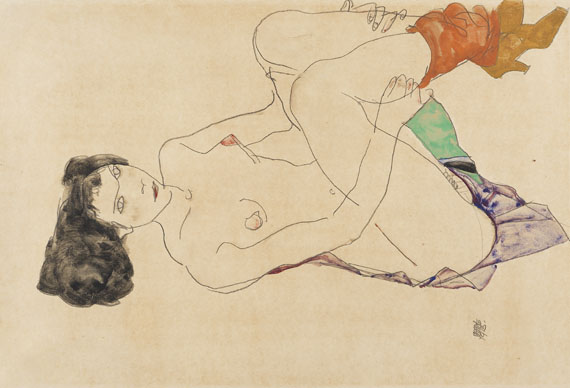Dictionary


Berlin Secession
The Berlin Secession grew out of the rejection by a group of artists who by 1892 had repudiated the academic view of art then prevailing in Berlin and broke away entirely from it in 1899. The protest was triggered off by the "Great International Art Exhibition" in Berlin, at which Norwegian artists, including Edvard Munch, were to show work. Led by Watler Leistikow, Franz Skarbina and Max Liebermann, the dissident artists first joined forces in February 1892 to form a "free association for mounting art exhibitions". When an exhibition showing works by Edvard Munch was closed down in November 1892 by members of the Verein Berliner Künstler [Association of Berlin Artists] because they found Munch's paintings offensive, vehement protest was voiced. Nevertheless, the artists in the dissenting group remained members of the Association of Berlin Artists and even continued to show work at the annual "Great Berlin Art Exhibition". However, when a landscape by Walter Leistikow was rejected by the jury making the selection for 1898, Walter Leistikow and sixty-five other artists seceded from the Association of Berlin Artists to found the Berlin Secession. Max Liebermann became its first president. Strife within the Secession ultimately led to a further schism in 1910 and the new group called itself the New Secession [Neue Secession]. In 1914 the rejection of works by some members of the Berlin Secession again led to quarrels. Several artists left the Berlin Secession to found the Free Secession [Freie Secession], which existed until 1924; Max Liebermann became president of the Free Secession. The Berlin Secession was in existence until 1933. The following artists were leading members of the Berlin Secession (and the groups that split off from it):
Hans Baluschek (1897-1935)
Ernst Barlach (1870-1938)
Max Beckmann (1884-1950)
Lovis Corinth (1858-1925)
Karl Hagemeister (1848-1933)
Willy Jaeckel (1888-1944)
Max Klinger (1857-1920)
Käthe Kollwitz (1867-1945)
Walter Leistikow (1865-1908)
Max Liebermann (1847-1935)
Otto Modersohn (1865-1943)
Edvard Munch (1863-1944)
Emil Orlik (1870-1932)
Franz Skarbina (1849-1910)
Max Slevogt (1868-1932)
Wilhelm Trübner (1851-1917)
Heinrich Zille (1858-1929)
The Berlin Secession grew out of the rejection by a group of artists who by 1892 had repudiated the academic view of art then prevailing in Berlin and broke away entirely from it in 1899. The protest was triggered off by the "Great International Art Exhibition" in Berlin, at which Norwegian artists, including Edvard Munch, were to show work. Led by Watler Leistikow, Franz Skarbina and Max Liebermann, the dissident artists first joined forces in February 1892 to form a "free association for mounting art exhibitions". When an exhibition showing works by Edvard Munch was closed down in November 1892 by members of the Verein Berliner Künstler [Association of Berlin Artists] because they found Munch's paintings offensive, vehement protest was voiced. Nevertheless, the artists in the dissenting group remained members of the Association of Berlin Artists and even continued to show work at the annual "Great Berlin Art Exhibition". However, when a landscape by Walter Leistikow was rejected by the jury making the selection for 1898, Walter Leistikow and sixty-five other artists seceded from the Association of Berlin Artists to found the Berlin Secession. Max Liebermann became its first president. Strife within the Secession ultimately led to a further schism in 1910 and the new group called itself the New Secession [Neue Secession]. In 1914 the rejection of works by some members of the Berlin Secession again led to quarrels. Several artists left the Berlin Secession to found the Free Secession [Freie Secession], which existed until 1924; Max Liebermann became president of the Free Secession. The Berlin Secession was in existence until 1933. The following artists were leading members of the Berlin Secession (and the groups that split off from it):
Hans Baluschek (1897-1935)
Ernst Barlach (1870-1938)
Max Beckmann (1884-1950)
Lovis Corinth (1858-1925)
Karl Hagemeister (1848-1933)
Willy Jaeckel (1888-1944)
Max Klinger (1857-1920)
Käthe Kollwitz (1867-1945)
Walter Leistikow (1865-1908)
Max Liebermann (1847-1935)
Otto Modersohn (1865-1943)
Edvard Munch (1863-1944)
Emil Orlik (1870-1932)
Franz Skarbina (1849-1910)
Max Slevogt (1868-1932)
Wilhelm Trübner (1851-1917)
Heinrich Zille (1858-1929)
Offers




